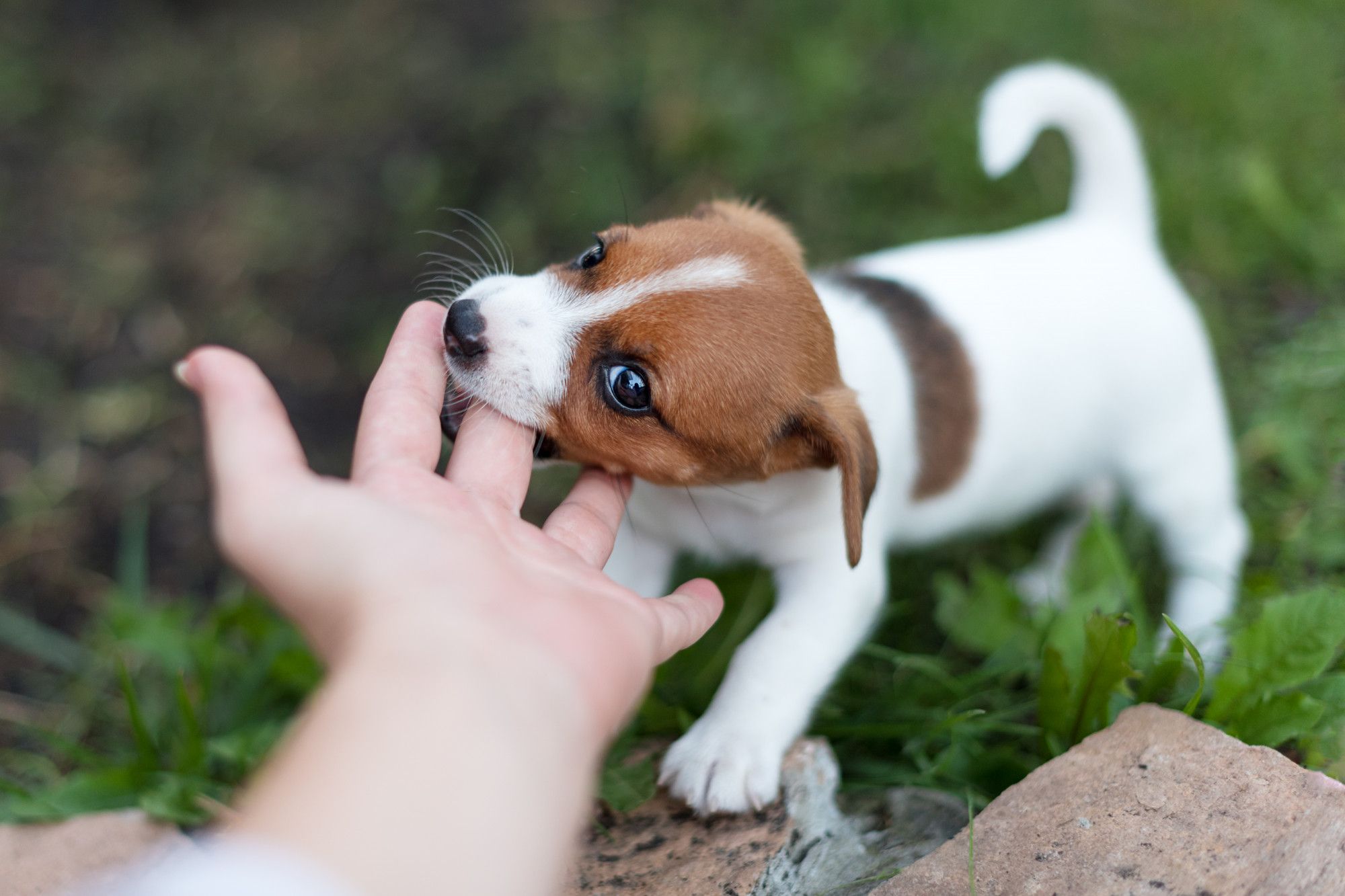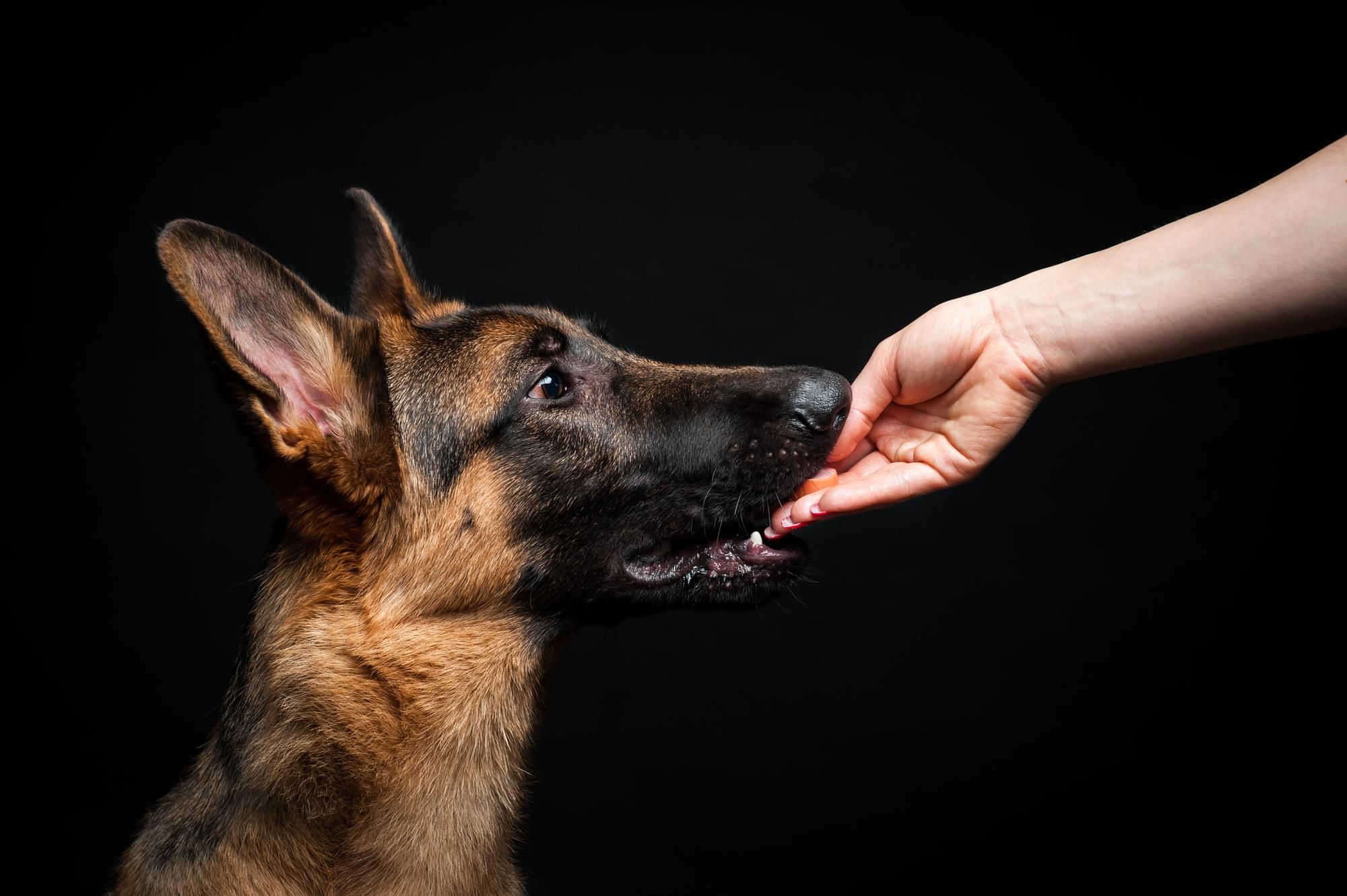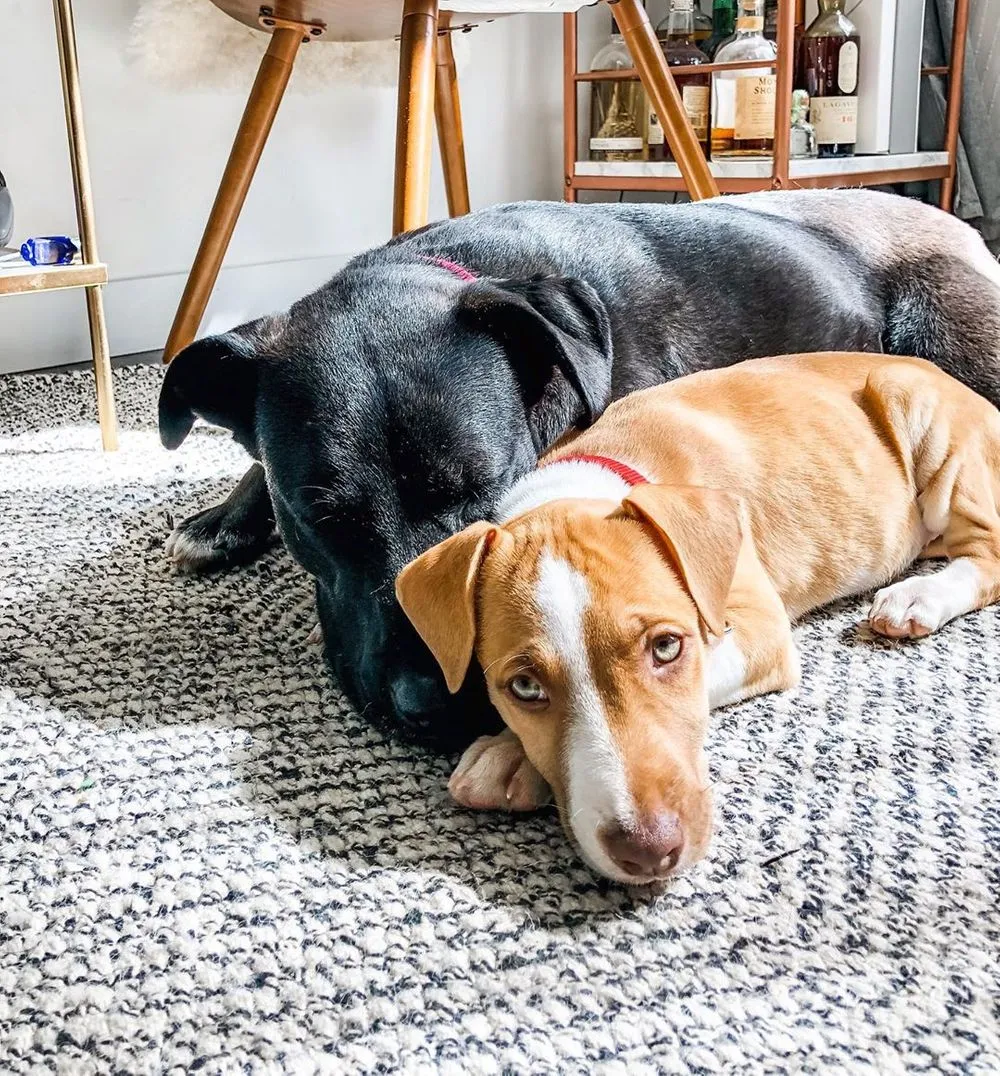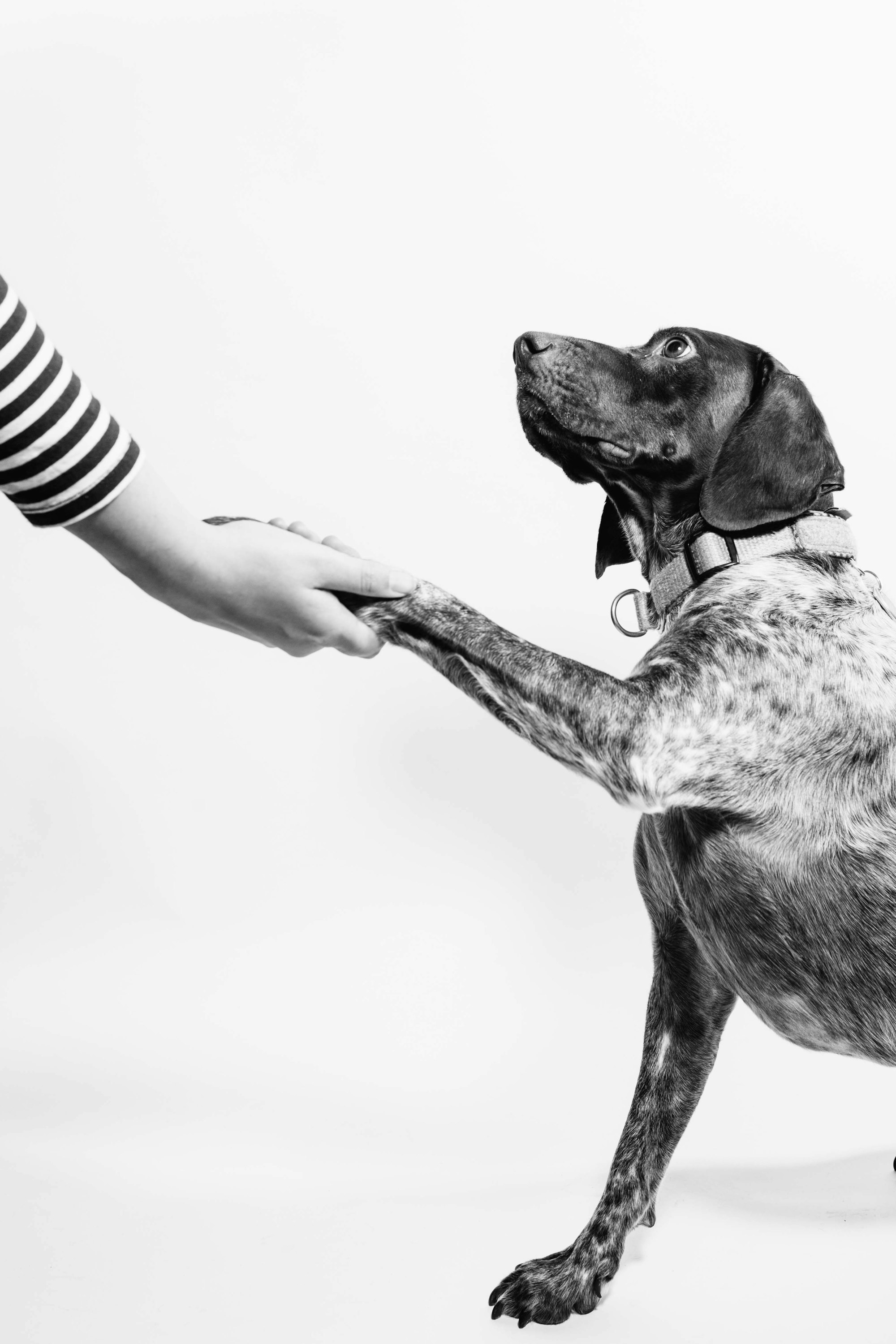Dogs have been man's loyal companions for centuries, and their wealth of behaviors and expressions continue to fascinate us. One such behavior often intrigues pet owners is when a dog licks their hand.
While it may seem like an innocent gesture of affection, the reasons behind this action can be more complex than we realize. Understanding why dogs lick our hands can provide insight into their communication techniques, emotions, and overall health.
In this article, we will explore the various reasons why dogs lick human hands. We will delve into the language of licking in dogs and discuss its evolutionary significance in canine communication. We will also examine the potential health implications for both dogs and humans when hand licking occurs excessively.
Furthermore, we will discuss strategies for managing excessive licking behaviors in pets while still maintaining a healthy bond between owner and pet. By understanding what it means when a dog licks your hand, you can gain greater insight into your furry companion's behavior and improve your relationship with them through positive reinforcement techniques.
The Language of Licking in Dogs

The language of licking in dogs is a multifaceted phenomenon that has evolved over time. Dogs, or 'pups' in their early stages of life, learn this behavior from their mothers who lick their puppies to groom them and facilitate social bonding.
Licking is a natural dog behavior that serves several evolutionary purposes. As a dog owner, it is beneficial to understand this behavior as it is a significant part of canine communication. Dogs will lick to transmit signals and convey information between individuals.
One of the most common reasons for a dog to lick is submission. Many dogs will attempt to lick another dog's or even a human's face, often seen as a sign of submission or deference.
This helps prevent potential conflicts and promotes peaceful interactions between members of the same social group. When a dog licks your hand constantly, this could be the dog trying to show submission. However, it could also signify that your dog likes to lick as a form of bonding or exploration.
Additionally, licking can serve as a way for dogs to clean themselves or their pack mates, removing dirt or debris from fur or skin. Dogs may also lick your hands and face for this reason, although, as a dog owner, you might not always want your dog to do so.
Some people are wary of letting their dogs lick them for hygiene reasons. You may ask, "How do I stop my dog from licking?" It can be difficult to control, but it's essential to remember that many dogs lick as a natural part of their behavior.
However, if your dog is trying to lick your face excessively, you might need to train it not to lick, especially if it becomes a problem. If you don't want your dog to lick your hands or face constantly, it is possible to train your dog to lick you, though it may require patience and consistent training.
Remember, when you give your hand to a dog, especially a dog you're meeting for the first time, the dog will want to sniff your hand before trying to lick it. If you can't allow your dog to lick for health reasons, you can always train the dog to stop a dog from licking. However, if your dog licks your hand constantly, it may be a sign of affection or simply that your dog is dog-like and enjoys the sensation.
Is it good if a dog licks your hand?

Optimally, receiving canine saliva on one's hand could be interpreted as a favorable indication due to the potential health benefits associated with dog saliva. However, the meaning behind a dog lick is not always clear and can depend on various factors such as context, body language, and breed.
Here are some possible interpretations of why a dog is licking your hand:
- Affection: Dogs may lick their owners or other dogs as a sign of affection. This behavior stems from their puppyhood when they would lick their mother to get attention and food.
- Sign of submission: Licking can also indicate submission in dogs. In this case, the dog may try to appease you or show that they are not a threat.
- Communication: Dogs use body language to communicate with humans and other animals. Dogs can use licking to convey various messages such as hunger, anxiety, or excitement.
- Good behavior: If you have trained your dog well, it may lick your hand to seek praise for good behavior.
While receiving a dog lick on your hand might not mean anything bad or negative towards you, paying attention to the surrounding context and accompanying body language before interpreting it solely as an affectionate act.
Do dog licks mean kisses?
Receiving a lick from a dog, particularly when a dog might lick your hand, may seem like a sign of affection, but it is important to note that this behavior can have multiple meanings.
While some dogs may indeed offer licks as an expression of love and friendship, others may do so for different reasons. Understanding your dog's licking behavior is crucial to interpreting their needs and feelings as a dog owner.
In some cases, dogs might lick humans as a sign of submission or to indicate that they are feeling uncomfortable or anxious. A dog can tell you much about their emotional state through their actions; licking is one behavior it might exhibit. Body language and context play important roles in interpreting the meaning behind a dog's licking behavior.
For example, if a dog approaches you with its ears back and tail tucked between its legs while giving you licks, it could indicate that they are afraid or nervous.
You might want to take your dog to a quiet, calming environment to help them feel more comfortable. On the other hand, another dog might lick your hands when you come home from work with excited wags and playful licks, and this might very well be their way of showing love and affection towards you.
Licking can also be a sign of respect or submission. Dogs are capable of complex social interactions, and they often lick the mouth of a more dominant individual as a sign of deference. So, if you have ever wondered why your dog always seems to lick your mouth, this could be a reason.
There could be other reasons your dog might lick your hand constantly. If you let your dog lick you frequently, they may start to associate this action with positive attention and continue to do so. If this is a behavior you'd like to discourage, there are methods to get your dog to stop.
Sometimes, a dog is trying to communicate something through licking. They might lick if they want food, attention, or even if they're feeling unwell. So, dogs rely so much on licking as a form of communication.
It's worth paying attention to when and how often they do it. Understanding what this behavior means can help you understand your dog's wants or needs, leading to a better relationship between you and your four-legged friend.

Main Reasons Why Dogs Lick Hands
One reason why dogs may lick human hands is to establish a friendly connection or bond. This behavior is often seen in puppies who frequently lick their mother's face and body to show affection and bonding. Similarly, when dogs lick human hands, they exhibit the same behavior that stems from their desire to connect with their owners.
There are several other reasons why dogs may lick human hands apart from establishing a bond. Taste-related reasons such as the presence of salt on the skin can also trigger licking behavior in dogs.
Seeking attention is another possible reason, especially if the dog has learned that licking results in positive reinforcement from its owner. Finally, stress or anxiety relief can also be a factor for some dogs who resort to licking as a coping mechanism.
By understanding these various reasons for dog licks, owners can better interpret their pet's behavior and respond accordingly with appropriate training and care.
Health Implications for Both Dogs and Humans
Understanding zoonotic diseases and the importance of regular dog hygiene and vaccination are crucial for both the health of dogs and humans.
Zoonotic diseases are those that can be transmitted from animals to humans, and some of these diseases can be contracted through contact with a dog's saliva. This is particularly relevant regarding dog licking, as dogs often lick their own bodies, other dogs, or even surfaces outside before they lick human hands or faces. Therefore, washing your hands thoroughly after interacting with a dog is important, especially if you have any cuts or wounds on your hands.
Regular dog hygiene and vaccination play a significant role in reducing the risk of zoonotic diseases. Keeping your dog clean by grooming them regularly and providing them with proper sanitation practices can help prevent infections that may be passed on to humans.
Vaccinating your dog against common illnesses such as rabies also helps protect both you and your pet from contracting dangerous diseases. It is important to consult with a veterinarian about an appropriate vaccination schedule for your furry friend, as different vaccines may have varying levels of effectiveness depending on factors such as age, breed, lifestyle habits, and geographical location.
By taking proactive measures towards ensuring good health practices for both yourself and your pet, you can enjoy the benefits of having a healthy companion without worrying about potential health implications caused by interaction with them.
When Hand Licking Becomes Excessive: Identifying and Addressing the Issue
Excessive hand licking in dogs can indicate underlying health issues or anxiety, and recognizing this behavior is crucial for effective management techniques. Some dogs may develop obsessive-compulsive behavior with excessive licking on their paws or owners' hands. This behavior is often associated with stress, anxiety, or boredom and can lead to skin irritation and infection if left untreated.
To manage excessive dog licking behavior effectively, pet owners should identify its possible causes. Possible underlying health issues such as allergies, pain, or gastrointestinal disorders must be ruled out by consulting with a veterinarian.
Pet owners must also ensure that their dogs receive enough exercise and mental stimulation to prevent boredom-related behaviors like excessive licking. Additionally, using positive reinforcement training techniques can help redirect a dog's attention away from obsessive-compulsive behaviors towards more desirable ones.
What to do if you need your dog to stop licking?
To discourage a behavior of excessive licking in dogs, redirect their attention towards more desirable activities or use positive reinforcement training techniques.
One way to do this is by engaging your dog in interactive playtime with toys that require them to focus on the task at hand. Puzzle toys, for example, can keep your dog occupied and mentally stimulated.
Another approach is to teach your dog alternative behaviors that you would like them to exhibit instead of licking. For instance, you can train your dog to sit or lie down when they feel the urge to lick. This will not only help stop the behavior but also encourage good manners.
It's important to note that punishment should never be used to stop behavior such as excessive licking in dogs. Rather than addressing the underlying cause of the behavior, punishment will only serve to harm your relationship with your pet. It could lead to further issues such as anxiety or fearfulness.
Instead, focus on providing positive reinforcement for desired behaviors and redirecting their attention toward more appropriate activities. You can encourage your dog towards better habits and improve their overall well-being with patience and consistency.

Frequently Asked Questions
Can excessive licking be a sign of a health problem in dogs?
Excessive licking in dogs can indicate a health problem, such as allergies or anxiety. A metaphorical comparison to a broken record illustrates the repetitive behavior and potential underlying issue. Seek veterinary advice if concerned.
Is it safe to let a dog lick your hand?
Allowing a dog to lick your hand is generally safe, but it's important to remember that dogs carry bacteria in their mouths. Washing your hands thoroughly after contact with a dog's saliva is best.
How can you tell if a dog is licking you as a form of greeting or because they are seeking attention?
Dogs may lick as a greeting or to seek attention. Other friendly behaviors like wagging tails often accompany greeting licks, while attention-seeking licks may be more persistent and occur during times of neglect or boredom.
What are some tips for managing excessive licking in dogs?
Excessive licking in dogs can be managed by identifying the cause, providing proper training, and addressing any underlying medical issues. Working with a veterinarian or professional dog trainer may be helpful in developing a plan to reduce excessive licking behavior.
Is there a way to train a dog to stop licking your hand?
To train a dog to stop licking your hand, consistently redirect them to appropriate behavior and reward it. Use positive reinforcement techniques like treats and verbal praise. Remember that dogs lick as a form of communication, affection, or stress relief, so ensure their needs are met through exercise, mental stimulation, and socialization.
Conclusion
Hand licking in dogs is a complex behavior that serves multiple purposes such as communication, bonding, and stress relief. However, it is important to understand the possible health implications for both dogs and humans. Regular hygiene practices and vaccinations are crucial in preventing zoonotic diseases. Excessive licking may also indicate underlying health issues or anxiety in dogs that require attention.
While hand licking can be endearing, it is necessary to recognize when it becomes problematic and address the issue accordingly. On the one hand, hand licking can be a positive way for dogs to interact with their owners and express affection. On the other hand, excessive licking can become an obsessive-compulsive behavior or a sign of underlying problems that must be addressed promptly.
Therefore, pet owners should know their dog's behavior and seek professional advice if necessary. With proper care and attention, hand licking can remain a healthy aspect of the human-dog relationship while avoiding potential health risks for both parties involved.






